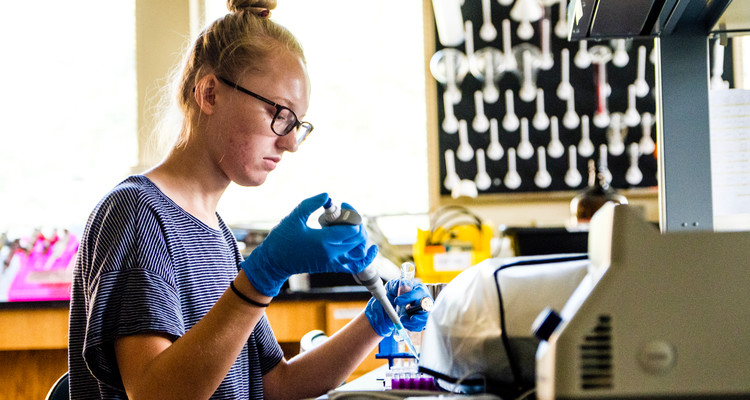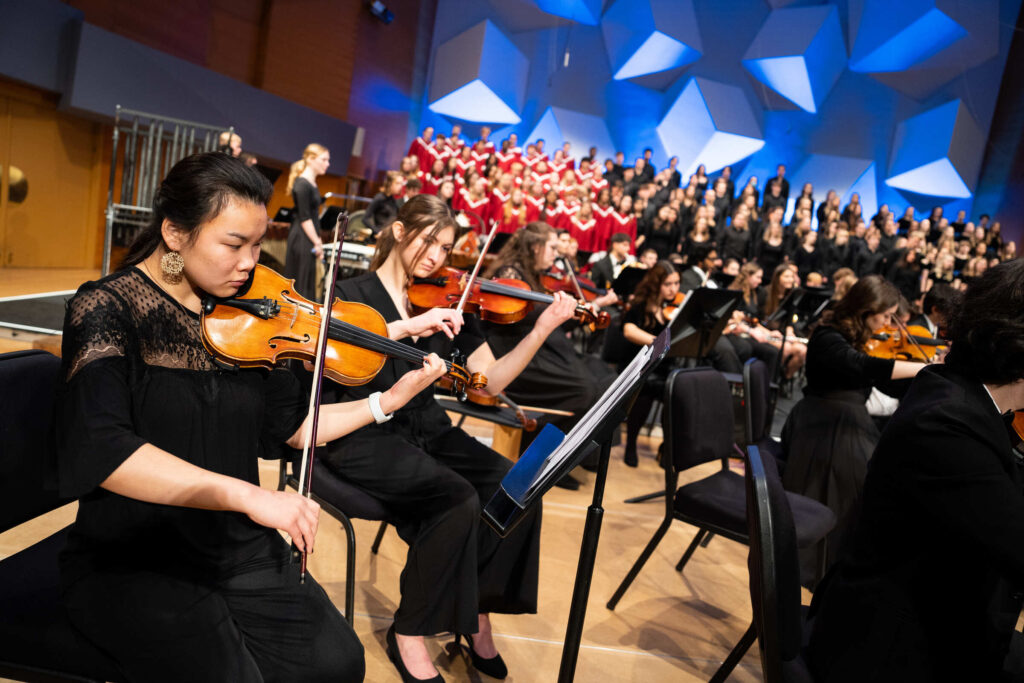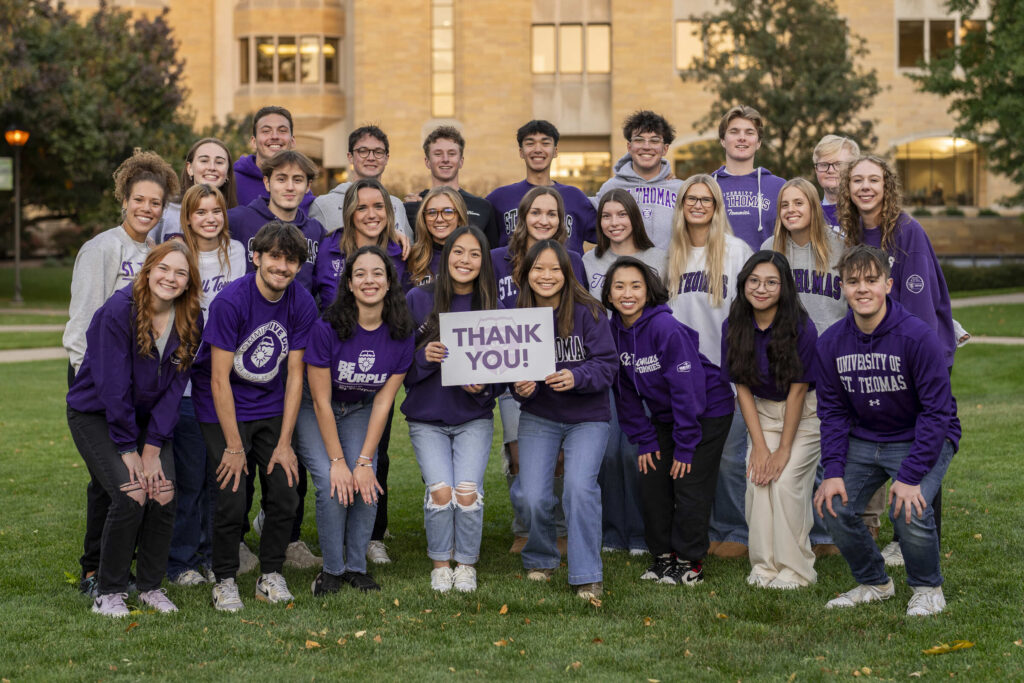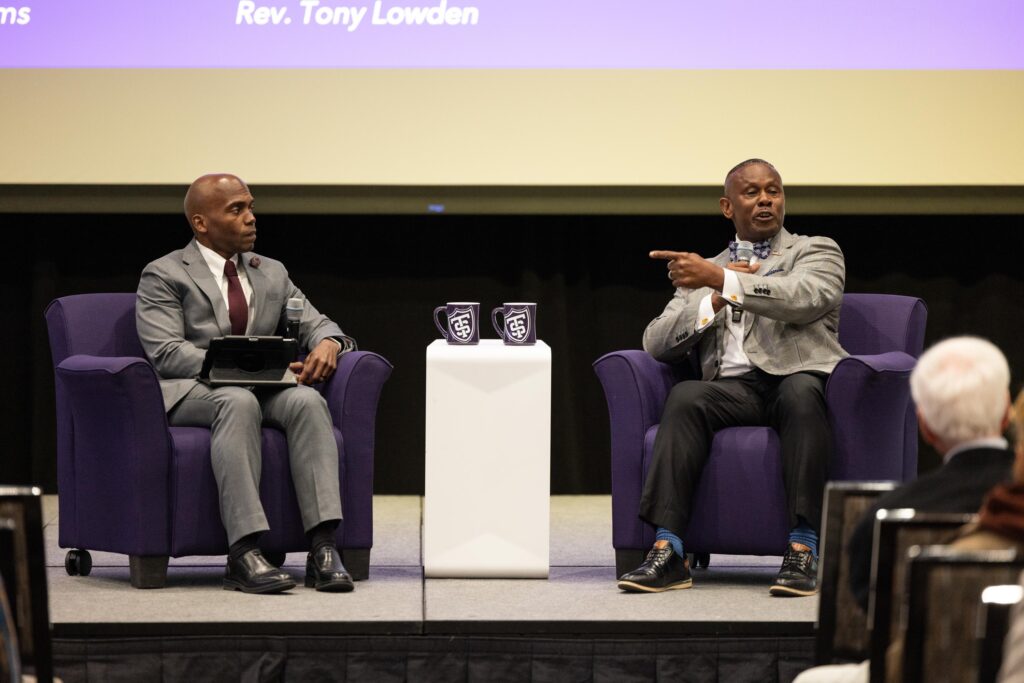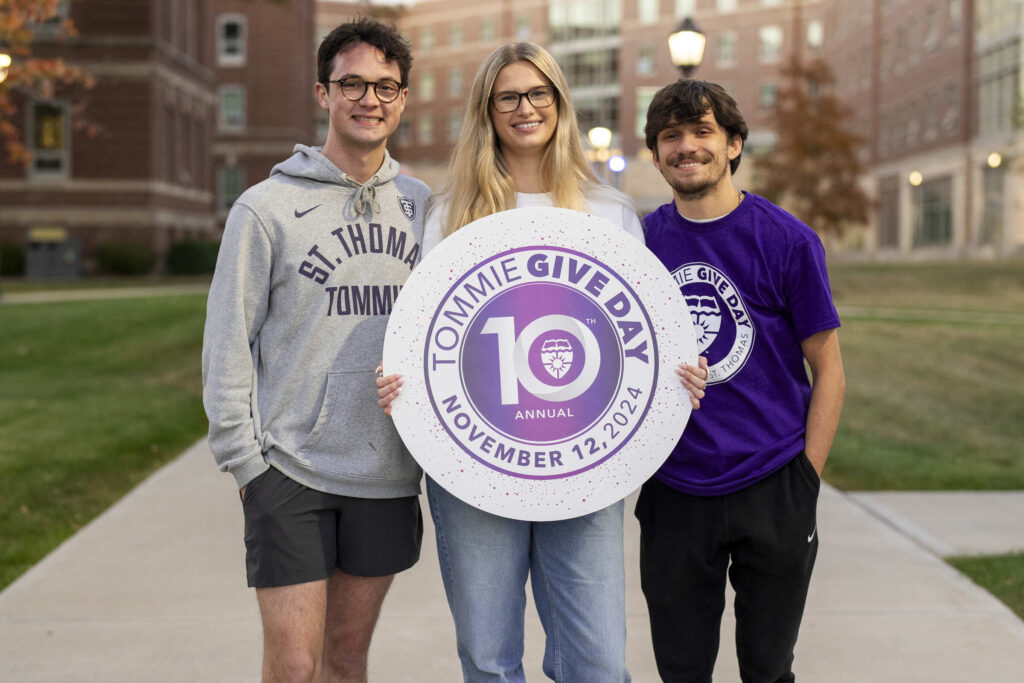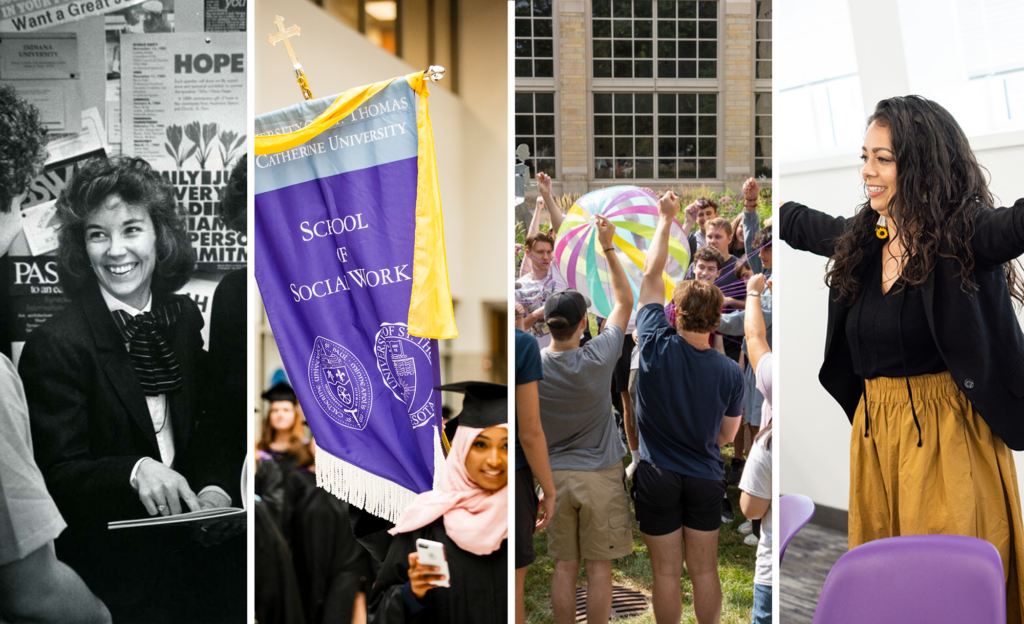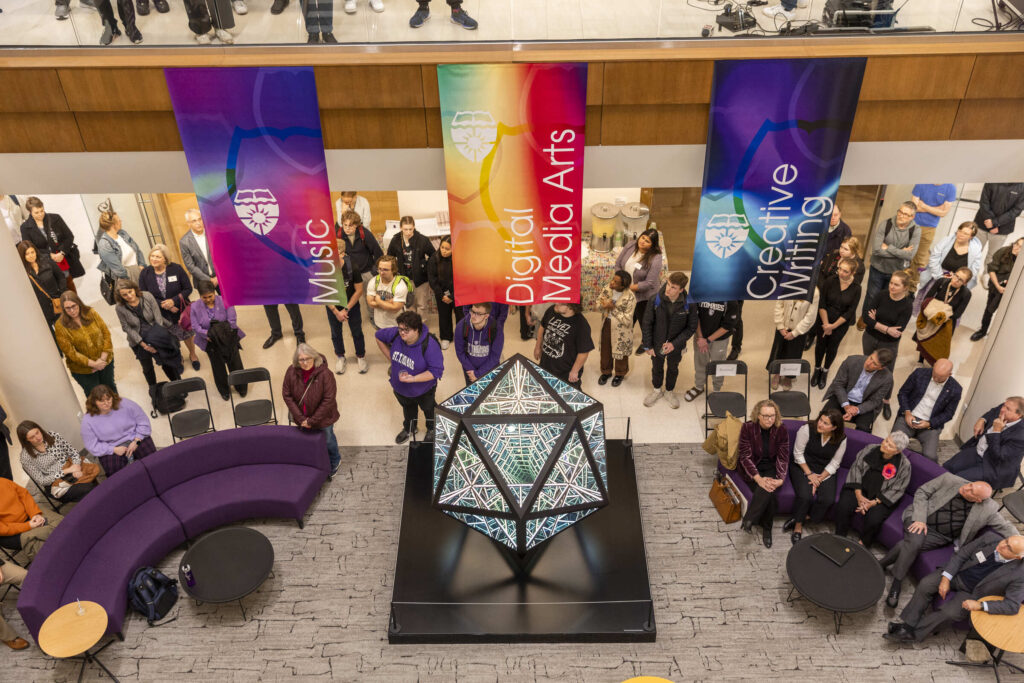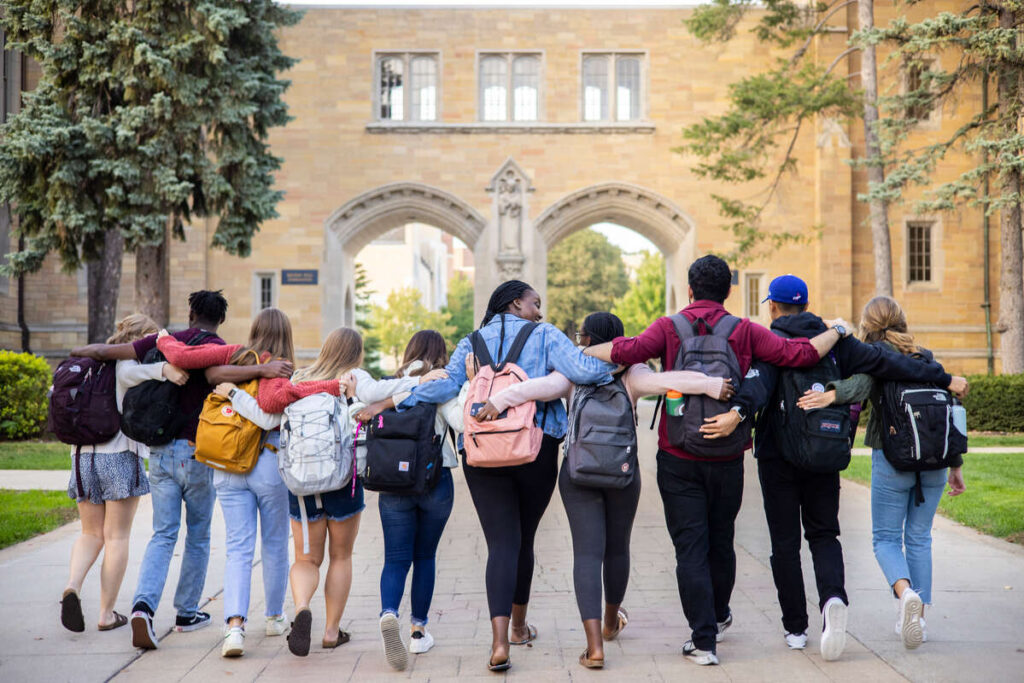"If you can plan, implement and present on a goal-oriented project like this in this [research] context, you can do that in any context. ... St. Thomas is training leaders."
Over summer 2017, Alice Ready and Emma Rinn flew drones at the Weaver Dunes Preserve, collecting to help support the preserve's mission. The summer before, Sam Madden worked in Eric Fort's chemistry lab learning how to make molecules. Whitney Oachs examined the history of highways and protest, with a particular focus on the Rondo neighborhood.
While these topics seem like they might have little in common, all these research projects were driven by undergraduate students at St. Thomas and made possible by grants from the Undergraduate Research Opportunities Program. The research is geared toward training students to learn proper methods in their fields while simultaneously allowing them to produce meaningful results. The benefits of these experiences can be nearly boundless.
For students who are looking to do research at St. Thomas, the Undergraduate Research Opportunities Program office is a great starting point. With a slew of grants, students craft their own projects over a semester or summer.
Program manager Laura Bru shared just a few of the benefits to students of doing research at St. Thomas.
Learn more about your field and discover your passion within it
Bru highlighted one of the great aspects of research: flexibility. Research can be done in any field, from chemistry to business to English; in the last year, Bru said her office has had students participate from 26 majors. The research also can be done at any point in a student's education.
She also mentioned students often find an area they care about and experimenting with how they might fit into that field.
"You have the time and space to use feedback and improve just working on this one project," Bru said.
Emily Titus, who studied what challenges immigrants face through a Collaborative Inquiry Grant, said her project affirmed for her this was the field she wanted to work in.
“This experience just encouraged that kind of passion – that desire to work with this population,” Titus said.
Work with experts
Students collaborate closely with a faculty mentor through the grants. While the students steer the projects, faculty may guide and ensure students develop the skills and methods needed for their field.
"It's one of the best opportunities that students have to experience [the] value of a close working relationship with a faculty member," Bru said. "That's one of the reasons people come to places like St. Thomas."
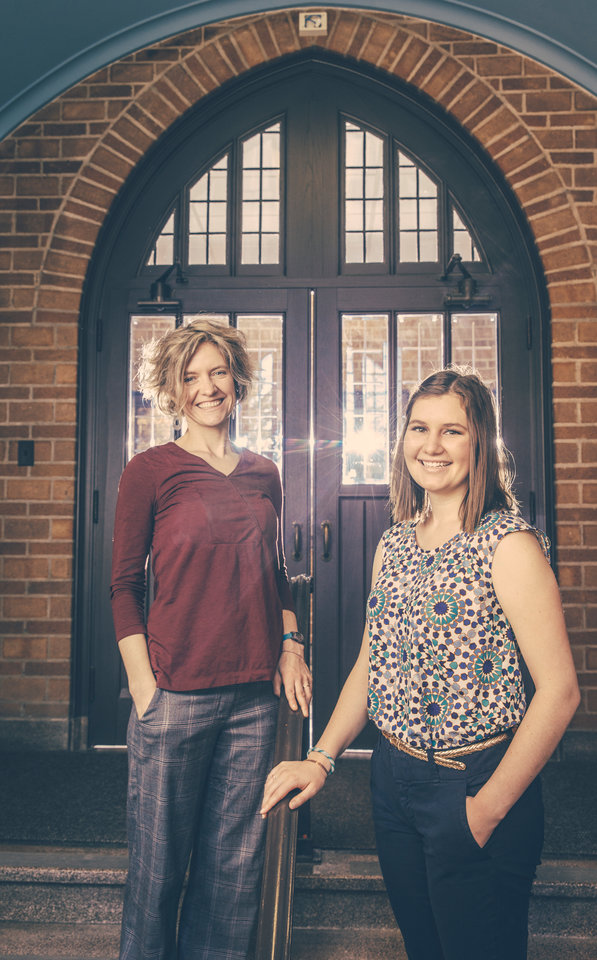
Amy Finnegan and Laura Kvasnicka
In fact, that was precisely the reason why Laura Kvasnicka, who studied gender equity in justice and peace studies through a Collaborative Inquiry Grant, came to St. Thomas.
“I definitely was only looking at smaller private colleges because I knew I wanted to form those kinds of relationships,” said Kvasnicka, who worked with Justice and Peace Studies Assistant Professor and Department Chair Amy Finnegan. “In justice and peace studies … I’ve gotten to know the faculty really well. Being able to form those kinds of relationships with my professors has been a great experience I was hoping to have in college, and it has turned out really well."
“It was probably one of the best learning experiences of my four years here,” Titus said of working with School of Social Work Associate Professor Ande Nesmith.
Students also connect with experts outside the classroom. Elliott Allen ’19 and Jenna Abrahamson ’19 traveled with Jeni McDermott, assistant professor in the Department of Geology, to Norway through a Young Scholars Grant. They studied the mystery surrounding why the country has rugged mountainous terrain and worked with other geologists.
“Working directly with renowned geologists means the level of conversation was higher,” Allen said. The interaction gave him an even stronger sense of what he can do in the field with his degree.
Give back to communities
Bru said another important aspect of research is that it helps students identify themselves as scholars.
"If from freshman year students can start to think of themselves as knowledge creators, they've already made a significant shift in how they're contributing to the St. Thomas community and to communities more broadly they belong to," she said.
Nesmith, who worked with Titus on her refugee project, said whenever she mentors student researchers she asks them to consider how they can impact a community.
“It’s one thing to study it. … It’s a completely different ballgame to do it,” Nesmith said. “Especially with community-based research, which I really strongly believe in. It’s really the only kind of research I do or do with students, because they have to negotiate and work with an organization.”
Through a Collaborative Inquiry grant, Madie Ley is doing research on the curation of Native American art, including how various museums handle such a task.
“I think Madie can add to the conversation, which is exciting from an undergraduate level,” said her mentor, Art History Professor Jayme Yahr. “This is what we expect from master’s thesis or dissertations. What a cool thing to be funded by St. Thomas and, for me as an adviser, to have an opportunity to work with an undergraduate like Madie, who is passionate, but is also contributing to the conversation.”

Tom Ippoliti and Tyler Ogorek
Meanwhile in chemistry, Tyler Ogorek, through a Young Scholars grant, is one of many students working alongside Chemistry Professor Tom Ippoliti on compounds used against bacterial diseases, which are becoming resistant to the drugs currently used to treat them. The work may be on day used to treat tuberculosis.
“Our goal is to really help society and do something useful,” Ippoliti said.
Grow communication skills
Bru emphasized an important part of being a well-developed researcher is talking and writing about that research. When applying for grants, students write to reviewers in their field, as well those outside of it.
After the project is completed, students present their work at the Inquiry at UST poster session and are also encouraged to think of other venues to share their work. The Undergraduate Research Opportunities Program also offers funding for travel if students want to present at a conference.
Hone leadership skills
Even if students don't go on to graduate school or research as part of their career, Bru pointed out that with such a rigorous process the experience itself provides students with valuable skills.
"If you can plan, implement and present on a goal-oriented project like this in this context, you can do that in any context," Bru said. "And I'm assuming that, regardless of where they end up, students are going to be expected do that. That's one of the things that leaders would need to do anywhere. St. Thomas is training leaders."
For more information on individual grants, visit the Undergraduate Research Opportunities Program's page. The deadline to apply for all summer grants is Feb. 16. For other feature stories written by the Newsroom about research at St. Thomas, please click here.
